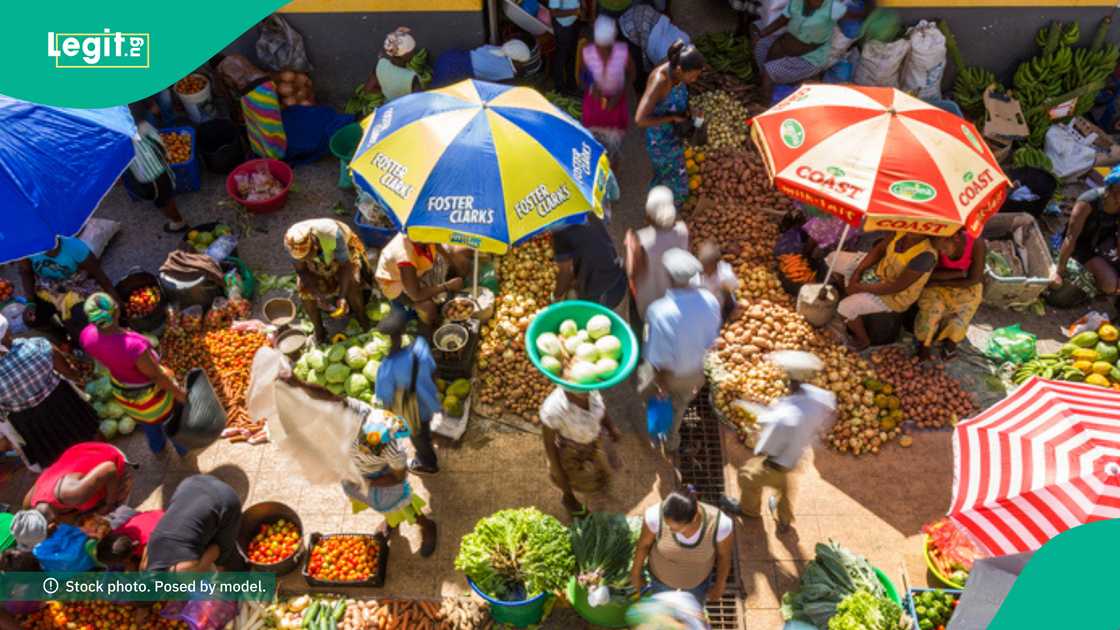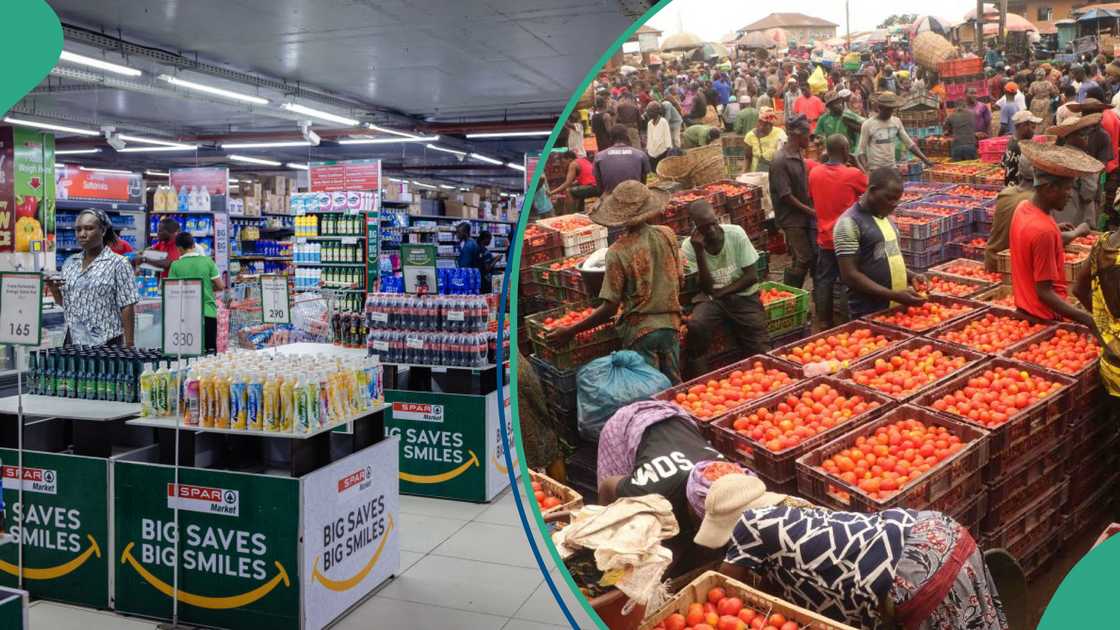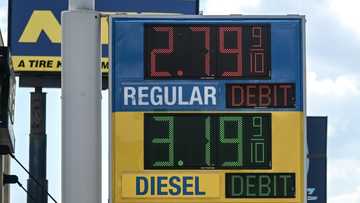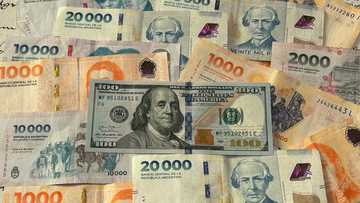Kogi Tops List of Most Expensive States to Live in September 2025 as Inflation Drops
- Nigeria’s inflation rate is dropping faster than anticipated, hitting 18.02% in September 2025
- Data from the National Bureau of Statistics (NBS) shows that the nation’s inflation is down from 20.12% in August this year
- However, despite the drop, about 10 states are experiencing high inflation rate, NBS data shows
Pascal Oparada, a reporter for Legit.ng, has over ten years of experience covering technology, energy, stocks, investment, and the economy.
Nigeria’s headline inflation eased to 18.02% in September 2025, down from 20.12% in August, according to the latest Consumer Price Index (CPI) by the National Bureau of Statistics (NBS).
The data shows a broad slowdown in price increases nationwide, largely driven by changes in the base year, but for many Nigerians, the relief remains elusive.

Source: Getty Images
On a month-on-month basis, inflation rose by 0.72%, only slightly below the 0.74% recorded in August, signalling that prices are still climbing—just at a slower pace.
Food inflation falls
While food inflation moderated to 16.87% year-on-year from 37.77% a year earlier, the NBS noted that food and non-alcoholic beverages remained the biggest contributors to the inflation index, adding 7.21 percentage points, followed by restaurants and accommodation services at 2.33 points.
The data paints a mixed picture: inflation is technically falling, yet the cost of living remains painfully high across many states, especially in the north, where insecurity, poor logistics, and transport bottlenecks continue to disrupt food supply.
Here’s a breakdown of the 10 most expensive states to live in Nigeria as of September 2025:
1. Kogi – 19.5%
Kogi recorded an all-items inflation rate of 19.5%, with food inflation at 17.4%. Although prices dipped slightly month-on-month (food down 1.8%), non-food items—like housing and utilities—kept overall costs high.
2. Borno – 19.7%
With headline inflation at 19.7%, Borno saw a dramatic 13% drop in food prices from the previous month, the sharpest fall nationwide. Still, non-food costs like energy and services offset the gains, leaving overall inflation only marginally lower.
3. Abia – 19.9%
Abia’s inflation stood at 19.9%, with food inflation at 15.3%. Food prices dropped by 5.5% month-on-month, but overall inflation ticked up by 1%, showing that non-food pressures, especially from transport and services, continue to bite.
4. Edo – 20.2%
Edo recorded a 20.2% inflation rate, driven mainly by housing, energy, and transportation costs. While food prices fell by 4.3%, the general index rose 1.8%, proving that easing food inflation isn’t enough to lower living costs.
5. Kaduna – 20.6%
Kaduna’s headline inflation came in at 20.6%, with food at 18.5%. Despite a 6.4% drop in food prices, the overall index edged up by 0.1%, reflecting sticky urban inflation in non-food categories like fuel and services.
6. Ekiti – 20.8%
Ekiti’s food inflation soared to 28.7%, the highest in Nigeria. Even though general inflation dropped by 3.8%, food costs rose sharply by 12.8%, making Ekiti one of the hardest places for households to afford basic meals.
7. Osun – 20.8%
Also at 20.8%, Osun’s inflation mix differs from Ekiti’s. Here, non-food costs such as utilities and housing are driving the spike. Food inflation was lower at 18.2%, but month-on-month, overall prices rose 1.6%.
8. Nasarawa – 22.3%
Nasarawa experienced one of the strongest inflationary surges in September. Headline inflation stood at 22.3%, while food inflation hit 22.7%. Month-on-month, both food and all-items indices jumped—by 9.8% and 7.5%, respectively, tightening household budgets further.
9. Katsina – 23.5%
Katsina’s headline inflation reached 23.5%, with food inflation at 17.4%. Monthly, food prices rose 6.3%, while the overall index climbed 2.4%, showing that non-food inflation, particularly from energy and transport, dominates in the state.
10. Adamawa – 23.7%
Adamawa tops the list as Nigeria’s most expensive state, with inflation at 23.7%. Food inflation stood at 18.1%, and both food and non-food prices surged by over 7% month-on-month. For residents, basic living costs are rising across the board, from markets to transport and housing.

Read also
Analysts predict naira to appreciate to N1,400/$ before December as inflation drops, reserves rise
The big picture
Nigeria’s inflation may have eased on paper, but the real cost of living remains painfully high in several states. The data underscores a stubborn mix of energy, logistics, and service-related pressures that continue to drive household expenses, even as food inflation moderates.

Source: Getty Images
Until these structural issues are fixed, most Nigerians will find little comfort in the headline decline to 18.02%.
10 most affordable states to live in Nigeria
Legit.ng earlier reported that NBS revealed that Nigeria's inflation rate declined in July 2024.
The bureau disclosed this in its latest Consumer Price Index (CPI) data, which showed a downward trend in the inflation rate for the first time in 19 months.
Inflation is a decrease in the purchasing power of money, reflected in a general increase in the prices of goods and services in an economy.
Proofreading by Kola Muhammed, copy editor at Legit.ng.
Source: Legit.ng





